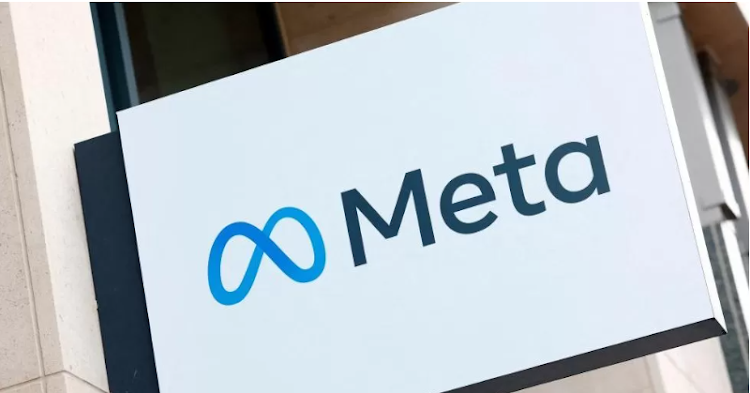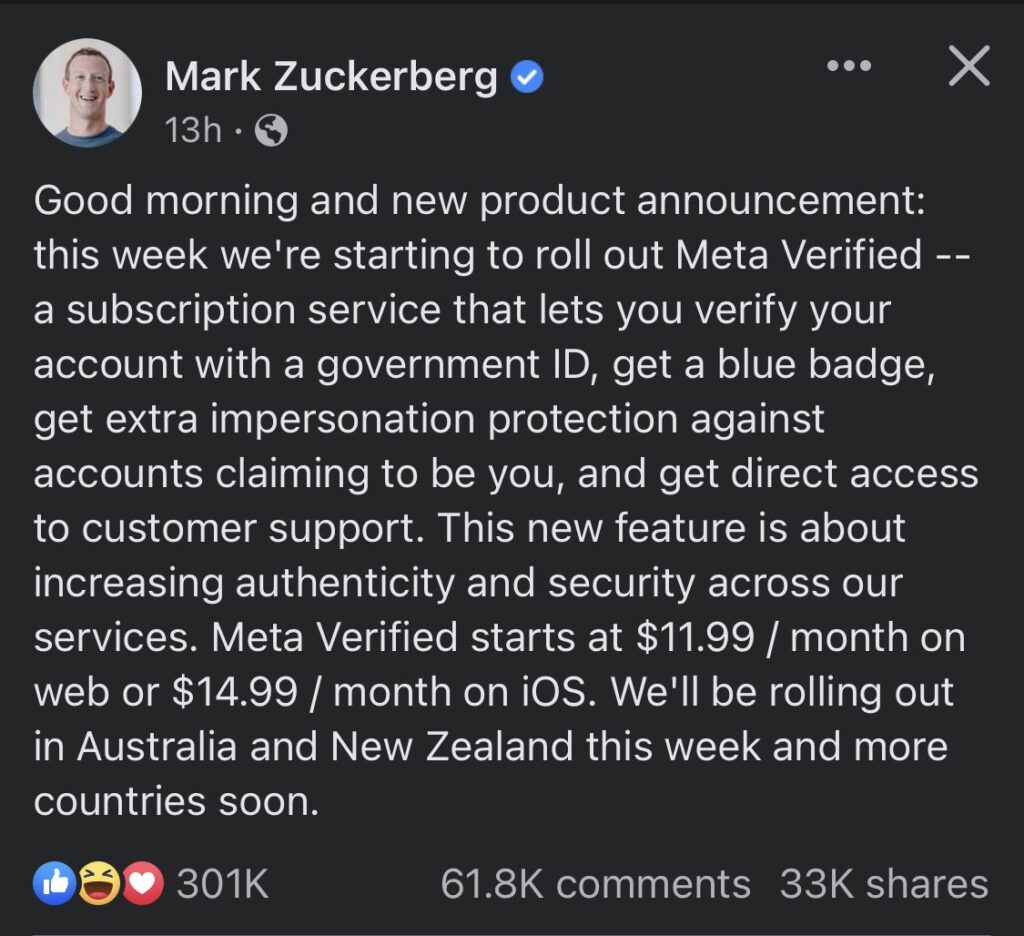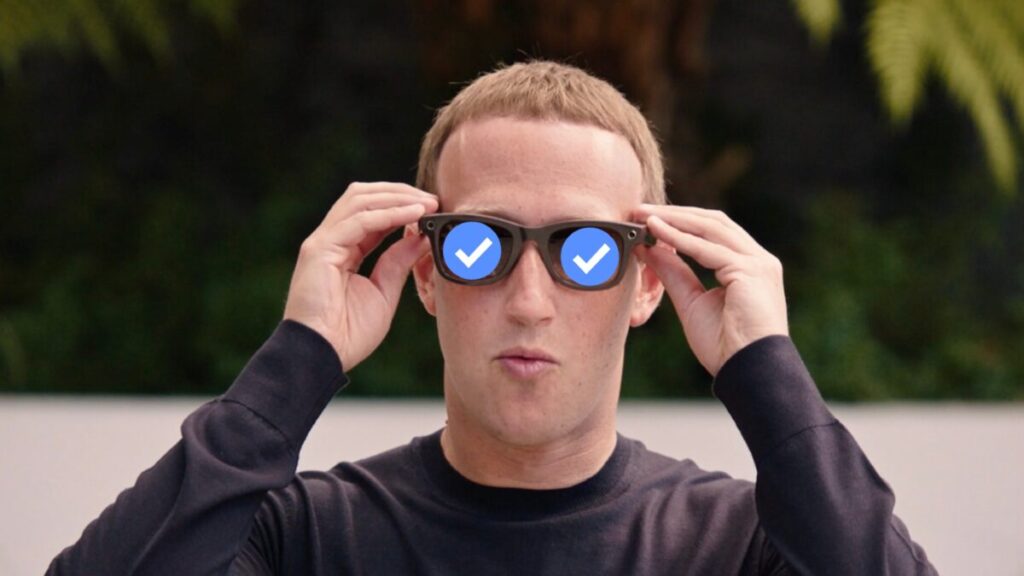
Meta, the firm that created Facebook and Instagram, has introduced fees for the verification of accounts at $11.99 per month on the web or $14.99 for iPhone users. This week, the service will be accessible in New Zealand and Australia.
In Mark Zuckerberg’s opinion, the move will enhance the trustworthiness and security of Facebook and Instagram users. High-profile accounts have used the “blue ticks” or badges as authentication measures to confirm their identity. With the new premium subscription service, subscribers will get a blue badge, better post visibility, security from impersonators, and simpler access.
Reports say Elon Musk’s installation of the premium Twitter Blue subscription in November 2022 triggered this action by Meta. Although businesses are not currently able to use Meta’s premium subscription service, anyone can pay for verification.

The launch of a for-profit verification business could aid in the fight against the spread of false information on social media. Since verified accounts are regarded as being more reliable, they may aid in limiting the dissemination of misleading information. The action has drawn criticism, though, as it might lead to a two-tier society where only those who can afford to pay are regarded as reliable.
It’s important to note that Facebook and Twitter both have processes in place for verifying accounts; however, these are often only available to high-profile individuals. Everyone can pay for verification through the new paid subscription services, regardless of their profile.
It’s possible to view the shift toward paid verification as a strategy for social media businesses to increase their revenue. Advertising revenue has emerged as a major source of money for these businesses as more individuals use social media for communication. Meta can diversify their revenue sources and lessen their dependency on advertising by providing paid services.
To sum up, the move by Meta to charge users for verified accounts is a major one in the struggle against false information on social media. The effectiveness of the new subscription service is yet to be determined, but it is obvious that social media companies are making efforts to increase security and authenticity on their platforms. It would be fascinating to observe how people respond to the new service because the shift toward paid verification has also drawn criticism.
CEO Mark Zuckerberg announced in a post that the function would be accessible “soon.” The company’s aim to move beyond social media and into the metaverse, a virtual world where users may engage with each other in a virtual setting, includes the Meta Presence function.

In order to address concerns about fraudulent accounts and bots, which have been a significant issue on the platforms, Meta has decided to require that usernames on Facebook and Instagram match those on a government-issued ID document. Meta aims to improve safety and trust on the platforms by making sure that profile owners are legitimate individuals and not imposters.






